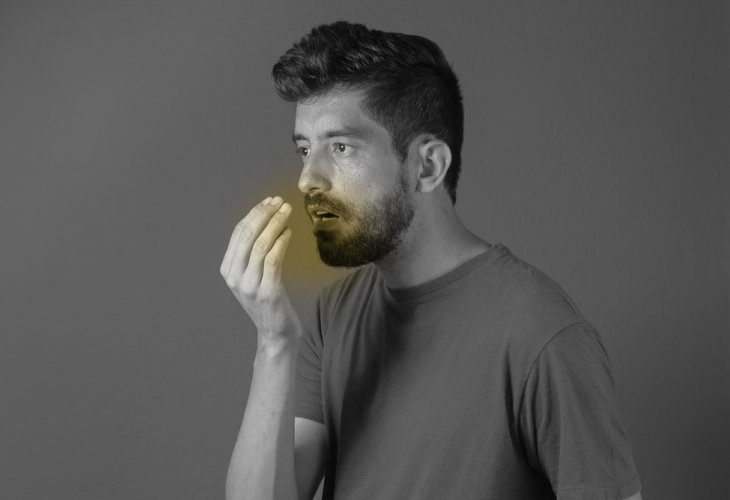Bad Breath? Here's What Your Doctor Recommends
Brushing twice daily and still can't shake off that bad breath? It might be time to reevaluate your routine. There are several causes of bad breath, and your toothpaste might be one of them. Discover what can make a difference!
 (Photo: Shutterstock)
(Photo: Shutterstock)Unfortunately, if you have bad breath, you're often the last to know. This isn't a joke—it's a fact. Most people won't mention it; they'll just keep their distance. One in four people will suffer from bad breath at some point, and most wake up with it regularly. So, what can be done to tackle this pesky problem? American doctor Dr. Berg has some surprisingly simple solutions.
What Exactly is Bad Breath?
The causes of bad breath can vary. Foods like garlic, certain cheeses, and coffee can contribute, as well as digestive system issues. Many aren't aware that today's common treatments for bad breath might actually be major culprits in its recurrence.
"Remember, our mouth is part of a much larger system—the digestive system," says Dr. Berg. "Being part of an active system, it's directly affected by what goes on inside." In his various online talks, Dr. Berg explains that sugar intake, for instance, is the number one cause. Sugar feeds unfriendly bacteria in the gut and mouth, producing acids that harm teeth and gums, leading quickly to unpleasant odors. Digestive problems, too, are known to cause bad breath.
One common approach to solving bad breath is brushing with fluoride toothpaste. While it kills the bad-breath bacteria, it also wipes out beneficial bacteria that protect against odors. Alcohol-containing mouthwashes do similar harm—like antibiotics that wipe out all bacteria, both good and bad. This means we're eliminating the short-term cause but actually promoting its long-term recurrence.
So, What Can Be Done?
- According to Dr. Berg, consider switching to a toothpaste that doesn't contain fluoride and avoid alcohol-based mouthwashes.
- Additionally, it's worth consuming green tea or even using it as a mouthwash (of course, allow it to cool first).
- There are special chewing gums available containing a natural substance called "Xylitol"—a natural compound found in fruits, vegetables, and corn husks. Unlike sugar, which fuels acid-producing bacteria, xylitol halts bacterial activity and prevents plaque and cavities. These gums might be pricier but significantly help prevent bad breath.
- Vegetables rich in chlorophyll are also excellent for preventing bad breath. Chlorophyll mimics hemoglobin's structure, aiding natural blood flow and detoxification. As an antioxidant, chlorophyll prevents stomach ulcers, purifies the liver, and blocks kidney stones. Try addinglettuce, cucumbers, spinach, Swiss chard, parsley to your diet. Your digestive system—and your mouth—will thank you.
- For immediate freshness, chew on parsley or mint leaves.
- For a longer-term solution, consider incorporating natural apple cider vinegar into your routine.
Of course, if the issue persists, it's wise to consult a doctor, as Dr. Berg points out, bad breath may often be a symptom of underlying digestive issues that should be addressed in a timely manner.
Stay healthy!
This article is for informational purposes only and should not be considered a substitute for medical advice.

